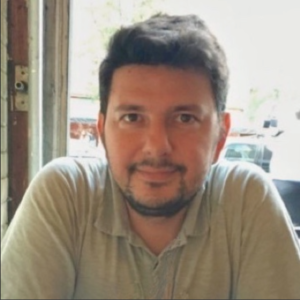Program on Science, Technology and Society at HarvardHarvard Kennedy School of Government | Harvard University |
|||||||||
|
|
Onur Özgöde is an economic sociologist whose work lies at the intersection of science and technology studies (STS), sociology of expertise, American political development, and history of economic thought and political economy. He is interested in how economic expertise forms co-produces the state and the economy and, with it, socio-economic problems, such as systemic risk in financial systems, climate change, and inequality, that are produced by markets but cannot be addressed through market-based governance strategies. Onur joined the Program in Science, Technology, and Society as a Senior Research Fellow in the summer of 2020 to work on the US economic response to the Covid-19 pandemic as part of the Comparative Covid Response: Crisis, Knowledge, Politics (CompCoRe) project, led by Sheila Jasanoff and Stephen Hilgartner, Cornell University. Onur is currently completing a book project on the emergence of systemic risk in finance since the 1970s, titled Fractals of Governance: The Emergence of Systemic Risk as a Limit of Macroeconomic Governance (under contract with the MIT University Press). Fractals of Governance examines the rise and transformation of the American macroeconomic state between the early 1920s and 2010 as a domain of economic expertise. This domain, the book argues, was built out of apparatuses (dispositifs) that not only construct “the economy” as a statistical interface between the state and the market, but also format this governmental entity as a vulnerable system, prone to the risk of systemic collapse. Tracing how different groups of experts, located in different parts of the American state, tried to reduce this risk without undermining economic freedoms and growth, Fractals of Governance establishes that although the concept of “systemic risk” was coined in the early 1980s by financial regulators, the problem it signifies is at once old and new. It is old, because it points to the systemic tendencies of capitalism to amplify local problems in different economic units and sectors to system-wide crises. Yet, it is also new, because it denotes the remapping of these tendencies onto a financial ontology in the 1970s. This mutation occurred as the fiscal and central planning apparatuses, created between the Great Depression and the Korean War, failed to reign in the postwar economic problems—inflation and dwindling growth. As a pragmatic remedy, a new group of economists, trained in monetary macroeconomics, assembled a new macroeconomic apparatus out of monetary policy instruments and key financial markets and thereby turned the Federal Reserve into the commanding height of the American economy. In a paper published in History of Political Economy, Onur showed how the national income and product statistics, most notably GDP, was invented as part of the effort to construct a statistical interface between the economy and the market in the interwar period by an emergent coalition of institutional and macro-economists as well as their allies within the American bureaucracy and the political field. A forthcoming article in Socio-Economic Review, The Emergence of Systemic Risk: The Federal Reserve, Bailouts, and the Limits of Monetary Government, delineates the remapping of systemic risk onto finance. In this piece, Onur finds that the rise of systemic risk in its contemporary form—as the risk that failure of one financial institution can trigger the collapse of others and if unchecked, the financial system and eventually the entire economy—was the consequence of a co-productive process within which the construction of the monetary apparatus resulted in the transformation of not only the global financial system but also the American economy at large. Previously, Onur was a Visiting Assistant Professor in the Department of Sociology at Northwestern University. He has also held postdoctoral fellowships at Northwestern and Duke Universities as well as the Harvard Law School’s Institute for Global Law and Policy. Onur received his Ph.D. and B.S. from the Departments of Sociology and Industrial Engineering and Operations Research at Columbia University.
Note: The above information concerns a past fellow at the Program on Science, Technology, and Society at the Harvard Kennedy School. It does not constituent evidence of current enrollment. The information may be out of date. To update their information, past fellows should e-mail the site administrator.
|
||||||||
